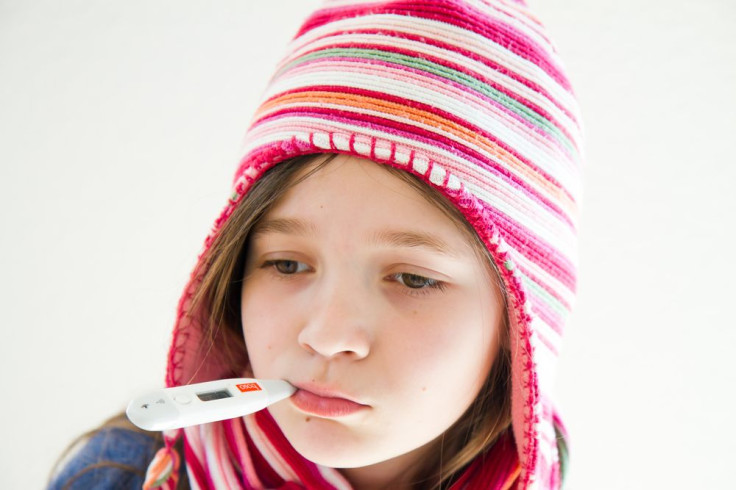Fighting The Common Cold: What Works, Doesn't Work, And How You Can Prevent It

With cold and flu season in full-effect right now, many people are running to the pharmacy to buy their go-to antihistamine-decongestant or the like. Meanwhile other people may be heating up a hot pot of tea — add some honey and lemon to it, and your cold will go away, right? It depends, actually. Not every remedy is going to work for all ages or symptoms. At least, that’s what a recent review of some of the most common remedies and prevention methods says.
Each year there are more than one billion cases of the common cold in the U.S., according to the Centers for Disease Control and Prevention (CDC). They affect adults as often as three times a year, and children under 2 years old up to six times a year, researchers of the study said. This is because there are as many as 200 different viruses that cause the common cold, with each one bringing with it different symptoms — ranging from fever to runny nose to coughs and sore throats. A person can also be sick for anywhere from a day or two to three weeks.
“Although self-limiting, the common cold is highly prevalent and may be debilitating,” the authors wrote, according to a press release. “It causes declines in function and productivity at work, and may affect other activities such as driving.”
So What Gets Rid of a Cold?
The review looked at many different studies and found that antihistamines (the ingredient that causes drowsiness) combined with decongestants or pain medications, like ibuprofen or acetaminophen, were at most, moderately effective for adults and kids over 5 years old. Pain relievers worked most for kids with a fever.
These antihistamine combo drugs could only “make you feel a little bit better if you’re desperate,” Dr. Michael Allan, co-author of the study from the Department of Family Medicine at the University of Alberta, told CBC News. “But remember, at best, one in five will feel better on those.” In fact, fever-reducing drugs might even make things worse.
The researchers also found that ipratropium, a drug normally used for asthma and chronic obstructive pulmonary disorder (COPD), could treat runny noses when used as a nasal spray — though it had no effect on congestion. Lastly, they found that honey was mildly effective in treating coughs in children over age 1 — children under 12 months could risk getting botulism, Allan said.
What Doesn’t Get Rid of a Cold
Unfortunately, for those who quickly guzzle a gallon of orange juice or drink tea with lemon, the vitamin C inside will do nothing to treat a cold. The various studies that the team looked at showed results that were so inconsistent that Allan said it’s “just not worth it,” according to CBC. Cough medicines were also ineffective in children, with only a slight effect on adults. Other random remedies like ginseng, gargling, vapor rubs, and homeopathy also proved ineffective. “Desperation will lead to just about anything. When people are sick, they’ll try everything from a spoonful of cayenne pepper, etcetera,” Allan told CBC. “Of course there’s very little research, or no research on any of those kinds of things.”
Also, because colds are caused by viruses, not bacteria, Allan strongly advised that sick patients avoid antibiotics. Unnecessarily using antibiotics can strengthen antibiotic-resistant bacteria, making us more susceptible to infections. In fact, researchers are currently trying to figure out ways to stop physicians from prescribing them unless they’re actually needed.
Prevention
By far, the most effective and simplest way to keep from falling ill to these viruses is to continuously wash our hands — a particularly challenging feat for some, considering that only about five percent of us know how to wash our hands properly. The CDC advises us to wash our hands before, during, and after almost anything we do that involves germs, from preparing food to touching an animal to using the toilet. Hand washing is easy. Wet your hands with water, apply soap, lather it on all over — on the back of your hands, in-between fingers, and the fingernails — scrub everything for 20 seconds, and then rinse and dry.
Besides hand washing, the researchers also found that zinc could help children and possibly adults. Two studies found that children who took 10 to 15 milligrams of zinc sulfate every day were less likely to get a cold. Lastly, probiotics, which are found in some yogurts, pills, and liquids, can aid in preventing a cold. However, they were unsure about the types of organisms that could be used and how they could be administered.
Source: Allan M, Arrol B. Prevention and treatment of the common cold: making sense of the evidence. CMAJ. 2014.



























